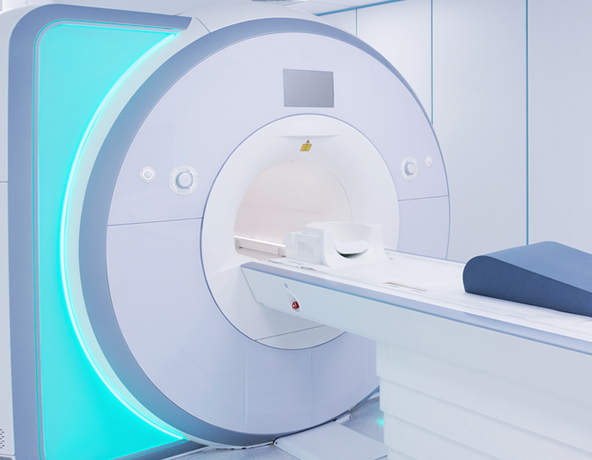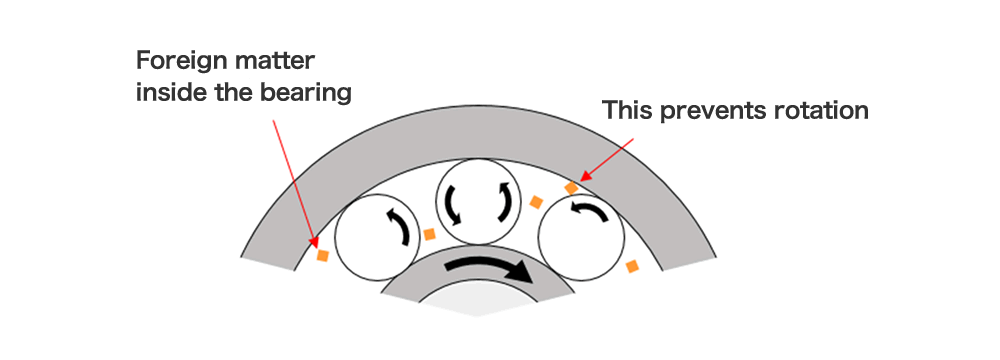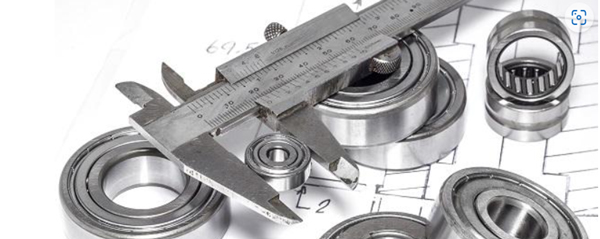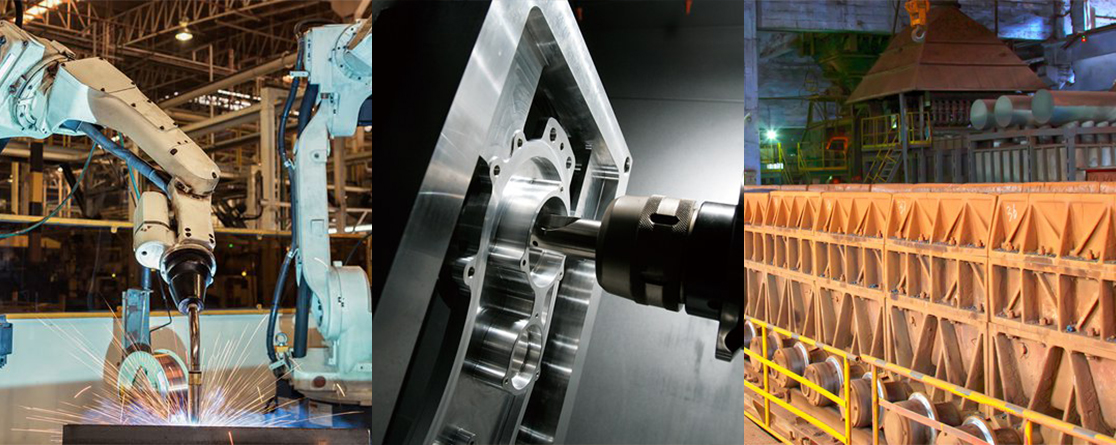-
Problems
- The ceramic bearings on the market can contain microscopic contaminants, and so they do not have sufficient rotational smoothness for use in medical devices.
- Even if all the bearings are sorted and categorized, it takes time and effort to discard the ones that aren’t smooth enough, and it is time-consuming to perform greasing on the remaining ones.
- When customers perform the greasing themselves, they often use products that are not intended for use on bearings, and so issues arise with bearing quality and functionality.
-
Solutions
- Using clean specifications for cleaning and packaging, in order to ensure smooth rotation
- Delivering pre-greased bearings suited to the usage conditions
Achievements
- Contributed to improved efficiency for our customers
Non-magnetic bearings that affect the precision of the device
MRI (Magnetic Resonance Imagining) is, as its name implies, a precision device that uses magnetism for diagnosis. The driving components and rotating components of the peripheral devices of the MRI use bearings.
However, with ordinary bearings, the metal (magnetic material) used as the material is affected by magnetism, so when they are used in MRI devices this can result in uneven rotation and fluctuations in torque, preventing precision operation from being performed.
For this reason, for bearings used in MRI peripheral devices, it is effective to use ceramic materials, which are non-magnetic as well as being highly durable.
-
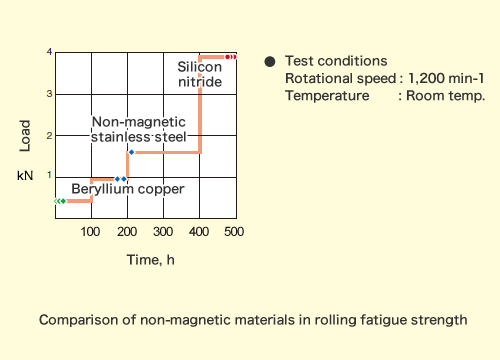
-
Non-magnetic bearings and relative permeability
Relative permeability Non-magnetic Hybrid Ceramic Bearings 1.01 or lower Ceramic Bearings 1.001 or lower (Ref.) Beryllium copper 1.001 or lower
Problems with commercially available ceramic bearings
Inexpensive ceramic commercial bearings used in the past had problems such as the following.
・Some of them did not rotate smoothly due to foreign matter, requiring them to be sorted
・Unnecessary processes, such as cleaning and greasing, were performed by the customer
Consequently, there were unnecessary costs due to more and more unnecessary steps, such as eliminating the bearings that don’t meet the criteria for selection.
Improvement #1: Clean specifications for cleaning and packaging
Clean specifications for cleaning and packaging was set up, in order to ensure smooth rotation.
These bearings are not only cleaned to a higher level than standard bearings, but also packaged in a cleaner environment than those standard bearings.
Having proposed the ceramic bearings from JTEKT to our customers, we received positive feedback, and all the shipped ceramic bearings were made to achieve the level of smooth rotation that our customers expect.
Improvement #2: Pre-greasing bearings suited to the usage conditions
Before delivery, in consideration of our customers’ operating conditions and required performance (such as the load conditions, rotational speed, operating environment), we select the lubricant and fill the grease best-suited for a bearing that can specifically meet these requirements.
This means that the customer does not need to perform greasing themselves.

As a result of these improvements, we were able to eliminate unnecessary costs due to the various unnecessary procedures that customers no longer need to take, such as cleaning, sorting, greasing, and eliminating the bearings that don’t meet the criteria for selection.
A Message from JTEKT

With bearings, there is no theoretical maximum performance. Rather, performance variations can occur due to the quality at the time of shipping, and these variations must be taken into account.
In particular, for bearings to be used in machines that require a high degree of reliability, if we take the quality to be the lowest from among the range of that variation, it is necessary to meet the required level of functionality.
Even if it is inexpensive as a stand-alone product, poor quality may lead to extra work and higher costs.
JTEKT is very discriminating when it comes to quality, and we always present our customers with the bearing that is best-suited to their product. If you have any concerns regarding the present product quality or costs, please feel free to drop JTEKT a line!
A Message from JTEKT
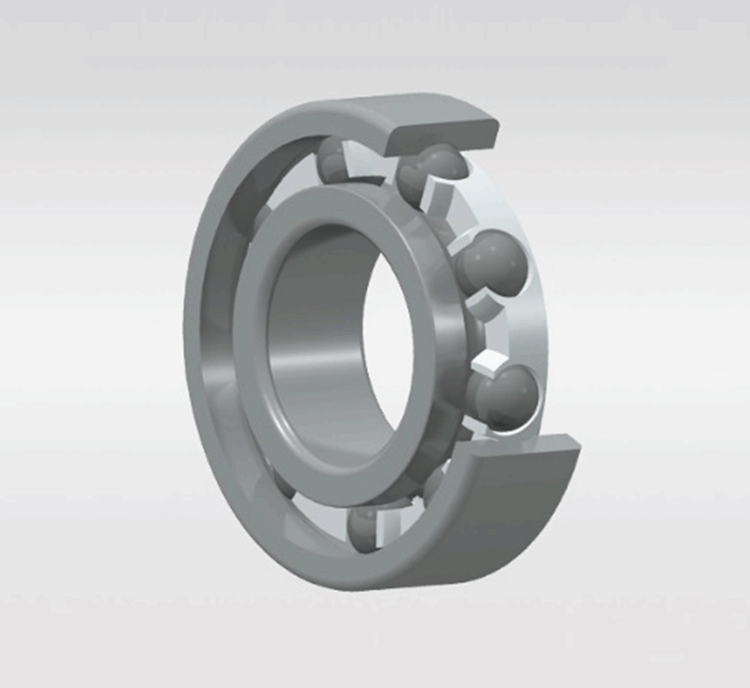
Ceramic bearings
-
JTEKT has, with the use of inner and outer rings made with non-magnetic stainless steel and rolling elements made with ceramic materials, developed hybrid ceramic bearings and full ceramic bearings that have achieved the same level of non-magnetism as conventional bearings.
Not only medical equipment but also some production processes conducted in strong magnetic field environments, such as semiconductor manufacturing processes, require low dust and low outgas as well as non-magnetic properties.
JTEKT offers a diverse lineup of bearings that can operate in high magnetic field environments, which are difficult to handle for ordinary bearings.
* EXSEVⓇ is a registered trademark of JTEKT.
Contact Us
